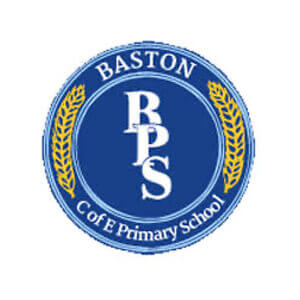FUTURES IN MIND - bespoke psychological service for schools
Access, flexible and highly rated – since we started supporting schools in September 2017, we have consistently achieved very positive ratings and feedback.
RECOMMENDED
100% of our schools would (highly) recommend us to a colleague
SATISFACTION
92% are very satisfied (highest rating) with our service
QUALITY/SERVICE
100% report that we offer a high or very high (highest rating) quality of service
MEETING NEEDS
9/10 rating in terms of meeting the needs of our partner schools
Testimonials
Karen
SENDCO, John Harrox Primary School, Spalding“The children are supported with a holistic approach to education and successful outcomes are being achieved."
Jayne
SENCO, Belmont Community Primary School, Grantham"This service has been extremely helpful to us in assisting us to meet the needs of the children in our school."
Ashely
SENDCO, Harlaxton Primary School, Grantham"Extremely beneficial in encouraging an inclusive and joined up approach to help children and families. Also, encourages reflective professional practice in school. Thank-you."
Glenn
Headteacher, Ketton Primary School, Rutland"A great service that allows us to quickly identify the support that a child needs in class and provide us with a clear direction."
Sharon
SENCO, Bourne Westfield Primary School"Great approach with families involved. Good partnership working approach."
Penny
SENCO, Isaac Newton Primary, Grantham"Excellent service - the support we have received has been unbelievable with fantastic positive results from our children."
Sarah
Headteacher, St Nicholas Primary School, Rutland"Understanding the pressures schools are under. Excellent relationships with families whilst being extremely realistic, positive and grounding. Committed to sustaining great outcomes."
READ OUR CASE STUDIES
Discover how we have supported schools to promote positive outcomes for children, young people and staff
STAFF WELLBEING
it was recognised by the senior leadership team of a large primary school, which was undergoing some significant challenges, that the wellbeing of staff was vitally important. Staff were reporting increased feelings of ‘stress’ and a sense of being overwhelmed by work.
Five sessions were delivered to staff who ‘self-selected’ to attend. These sessions were aimed at increasing participants’ wellbeing through the introduction of the Five Ways to Wellbeing framework, as well as exploring the (psychological) factors that help us to change our behaviour.
The Warwick and Edinburgh Mental Wellbeing Scale was used measure progress before and after the sessions. By the end of the five sessions, which took place over a 12 week period, ALL participants had experienced an INCREASE in their overall wellbeing. Overall, the group experienced an average increase of 42% in their wellbeing by the end of the sessions.
BESPOKE TRAINING
The behaviour and management of children at break and lunch times was causing difficulties that spilled over into the classroom such that teachers’ time was being taken up with resolving these issues.
Following a problem-solving discussion with the SENCO and deputy head teacher, it was agreed that training ALL staff on a universal approach that addressed emotional and social difficulties would be implemented: namely, emotion coaching.
There was a significant reduction in the number of difficulties on the playground that required further teacher intervention. Children calmer; staff calmer.
INDIVIDUAL SUPPORT
A looked after child presenting with very challenging behaviour that placed him at risk of exclusion; affected his peer relationships and access to positive learning experiences.
A brief discussion with the class teacher, and observation, followed by a strengths based, person centred planning meeting with staff and parents. This approach allowed us to generate a joint understanding of his behaviour and agree a positive way forwards.
Feedback collected indicated that staff had increased their confidence in understanding his needs by 250% and confidence in meeting his needs by 150%. This young person is now no longer at risk of exclusion.
WHOLE CLASS SUPPORT
Two year one classes contained very high numbers of children with special educational needs, including some children who displayed very challenging behaviour. As a result, the teachers were becoming very stressed with overall management of the classes.
Observations across both classes; followed by a series of problem-solving sessions with all staff involved (three across a period of six months). Individual teacher coaching sessions were also introduced.
Both class teachers reported significantly reduced stress levels to the degree that they were ‘enjoying‘ teaching. Further, behaviour and learning across both classes had also improved significantly.
WHOLE SCHOOL SUPPORT
A school was concerned about the coherence of it’s provision regarding social and emotional wellbeing. It was stated that there were ‘pockets’ of good practice, but weren’t confident in how to move things forwards.
A tiered approach was taken involving an initial data gathering exercise (to engage the school community); sessions with staff (led by the head) to generate a clear vision and aims and then action planning so that the aims could be achieved across the year and guide various training and support programmes.
The school has now established a clear vision relating to emotional wellbeing that is valued by all within the school community and a programme of training and support is currently being developed – this exciting project will last into the next academic year.
STAFF COACHING
Newly qualified teaching staff requested support around managing emotional and social needs of the pupils in their class.
Following a problem solving discussion with the SENCO, it was agreed that the group of NQT’s would benefit form a group coaching solution-focussed approach to collaboratively develop ways forward to support the development of positive relationships.
Staff were empowered to share, discuss and implement ideas to promote a sense of belonging within their classrooms. Staff reported most useful aspects of the process ‘was understanding what might be driving the children’s behaviour’ and ‘the importance of creating a sense of belonging’. Staff valued the opportunity for reflection, sharing experiences and felt empowered to go away and have a go.

















